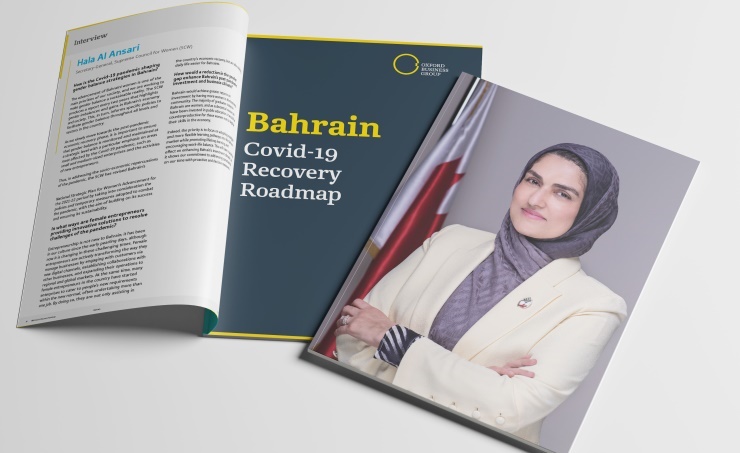Bahrain: Secretary-General of the Supreme Council for Women (SCW), Hala Al-Ansari, has asserted that the SCW is making strenuous efforts to continue the policies and plans to integrate women’s needs in the kingdom’s development process, by supporting all national efforts aimed at enhancing Bahraini women’s participation in public life, including their family stability, and their access to decision-making positions.
“The advancement of Bahraini women is one of the main priorities of our society, and we are working to make gender balance a sustainable reality, Al-Ansari said in an interview with the OBG magazine.
She also indicated that Bahrain continues to refine its national experience to achieve gender balance, whose current results match the degree of empowerment of Bahraini women and the reality of their participation in the national economy.
She pointed out that the “National Gender Balance Report”, issued by the SCW every two years includes a method to measure gender balance indicators, noting that it is a mechanism that monitors the progress of women’s advancement in all key sectors at the national level, measures the effectiveness and impact of the national policies, legislation and plans aimed at increasing “Bahraini women’s competitiveness”, as well as measures the positive impact of that on development indicators, and compares the national indicators with international ones in order to stimulate the development of women’s contributions at all levels.
In the interview published by the Oxford Business Group magazine within a detailed report entitled “How can Bahrain stand out as a post-pandemic investment destination?”, Al-Ansari said: “As we move slowly towards the economic recovery phase, it is important to ensure that gender balance is monitored and maintained at a strategic level with a particular emphasis on areas most affected by the COVID-19 pandemic, such as small and medium-sized enterprises and the activities of new enterprises.”
“Thus, in addressing the socio-economic repercussions of the pandemic, the SCW has revised Bahrain’s National Strategic Plan for Women’s Advancement for the 2021-22 period by taking into consideration the policies and temporary measures adopted to combat the pandemic, with the aim of building on its success and ensuring its sustainability,” she added.
Asked about the way female entrepreneurs are providing innovative solutions to resolve the challenges of the pandemic, Al-Ansari indicated that they are “actively transforming the way they manage business by engaging with customers via new digital channels, establishing collaborations with other businesses, and expanding their operations to national and global markets.”
“At the same time, many female entrepreneurs in the country have started enterprise to cater to people’s requirements within the new normal, often undertaking more than one job. By doing so, they are not only assisting in the country’s economic recovery, but are also making daily life easier for Bahrainis,” she also said.
Responding to a question on how a reduction in the gender gap would enhance Bahrain’s post-pandemic investment and business climate, she stressed that the “priority is to focus on adopting multiple and more flexible learning pathways into the labour market while promoting life-long learning and encouraging work-life balance. This will have a positive effect on enhancing Bahrain’s investment climate, as it shows our commitment to addressing constraints on our time with proactive and decisive measures.”
In its report on Bahrain’s recovery roadmap, the Oxford Business Group magazine devoted a part to the SCW to shed light on the crucial role played by Bahraini women in mitigating the impact of the pandemic on their society and the national economy.


